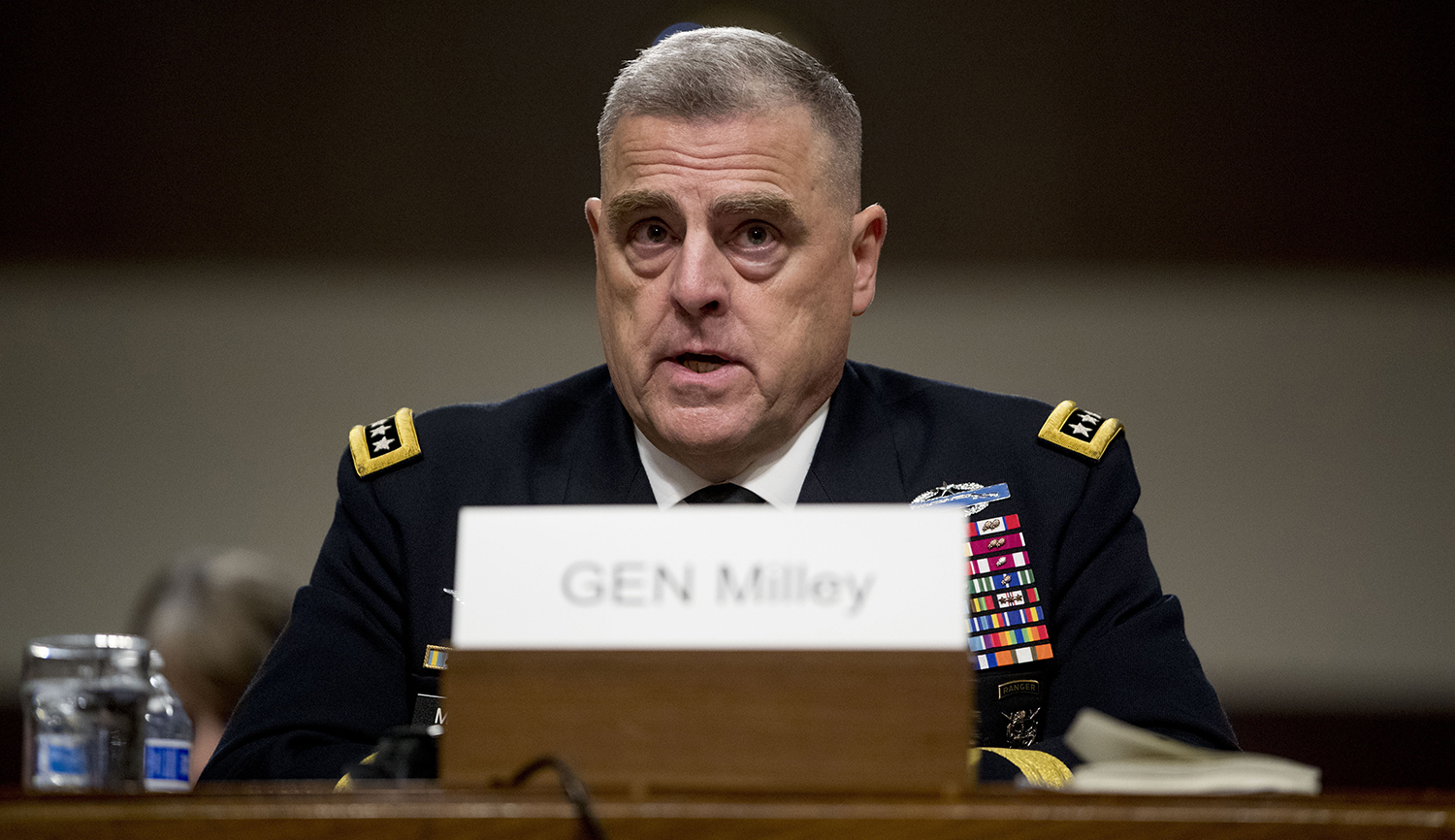Failure to pass a defense budget would have catastrophic effects on the military’s efforts to modernize and shift focus from counterterrorism to great power adversaries such as Russia and China, Army Gen. Mark Milley warned amid a partisan battle over the bill.

Milley, President Trump’s choice to lead the Joint Chiefs of Staff, told the Senate Armed Services Committee that stable, predictable funding is the military’s top priority.
If Congress can’t ratify the 2020 National Defense Authorization Act, it may have to resort to a temporary funding measure known as a continuing resolution. Military officials have long warned against such measures because they prevent the Pentagon from planning spending ahead of time.
A continuing resolution would have “a very significant negative impact” on training, recruitment, equipment, and modernization of the force, Milley said during his confirmation hearing Thursday, adding that he agrees with the National Defense Strategy Commission characterization of CRs as “reckless.”
“You’re going to have issues with procurement and new starts and delays of acceleration of programs that are already there,” he said. “Your research [and development] and science, technology, the modernization we are talking about to face the challenge of China in the future — or any other country in the future — I think all of those will be negatively [impacted] unless we get the full budget passed.”
The Senate, with bipartisan agreement, passed its version of the defense bill last month, giving the Trump administration the $750 billion budget it requested. But the House is split on partisan lines, with Democrats pushing a $733 billion budget toward a vote. Republicans argue the $17 billion shortfall fails to meet several key needs as the military continues its transition to great power competition. Democrats maintain the GOP must be willing to compromise.
“Normally the NDAA is a product of bipartisan consensus that allows Congress to execute our most important Constitutional duty,” Texas Republican Mac Thornberry, the House Armed Services Committee ranking member, said in a statement Tuesday. “Unfortunately, partisan provisions in this bill have robbed it of bipartisan support.”
The committee chairman, Washington Democrat Adam Smith, countered that claim, saying that Republicans have been given a voice in the bill’s amendment process.
“We fielded, gosh, hundreds of proposals and hundreds of amendments, and in the end, of the proposals that were put forward to our committee, we adopted 53% of the ones that were offered by Republicans and 52% of the ones that were offered by Democrats,” he said.
In addition to funding concerns, Milley will take on his new role as the Pentagon deals with leadership vacancies. Former acting Defense Secretary Patrick Shanahan’s decision to remove himself from the nomination process created a succession crisis, forcing several shifts across the department’s highest ranks, which Milley said could have serious negative impacts on the military’s ability to operate effectively.

